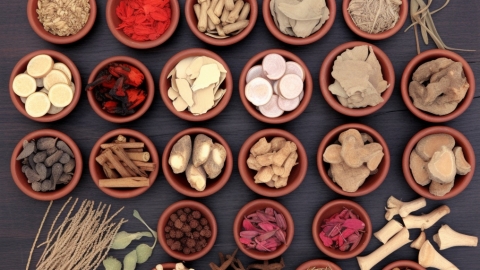What are the effective traditional Chinese medicines for treating mycoplasma pneumonia?
Generally speaking, there is no specific medication for treating mycoplasma pneumonia. However, traditional Chinese medicine (TCM) formulas such as Sang Baipi Tang, Qing Jin Hua Tan Tang, Ma Xing Shi Gan Tang, Qing Fei Hua Tan Tang, and Bu Fei Tang are used for treating mycoplasma infections. Detailed explanations are as follows:

1. Sang Baipi Tang
Sang Baipi Tang has the effects of clearing heat from the lungs, relieving cough, and expelling phlegm. It is suitable for symptoms such as coughing and phlegm production caused by mycoplasma pneumonia.
2. Qing Jin Hua Tan Tang
Qing Jin Hua Tan Tang clears the lungs, resolves phlegm, moistens dryness, and reduces upward rushing qi. It is effective for treating symptoms such as coughing, excessive phlegm, and difficulty breathing caused by mycoplasma infection.
3. Ma Xing Shi Gan Tang
Ma Xing Shi Gan Tang consists of Ephedra (Ma Huang), Apricot Seed (Xing Ren), Gypsum (Shi Gao), and Licorice (Gan Cao). Its functions include dispersing the lungs, relieving exterior symptoms, clearing heat, and resolving phlegm. It is suitable for symptoms such as cough and chest tightness caused by mycoplasma pneumonia. It is taken as a decoction, with the daily dosage determined according to the patient's age and weight.
4. Qing Fei Hua Tan Tang
Qing Fei Hua Tan Tang consists of Platycodon (Jie Geng), Fritillaria (Bei Mu), Trichosanthes (Gua Lou), Poria (Fu Ling), Pinellia (Ban Xia), and Licorice (Gan Cao). It clears the lungs, resolves phlegm, moistens dryness, and reduces upward rushing qi. It is effective for treating symptoms such as coughing, excessive phlegm, and difficulty breathing caused by mycoplasma infection. It is taken as a decoction, with dosage and frequency adjusted according to medical advice.
5. Bu Fei Tang
Bu Fei Tang consists of Ginseng (Ren Shen), Atractylodes (Bai Zhu), Poria (Fu Ling), Honey-fried Licorice (Zhi Gan Cao), Tangerine Peel (Chen Pi), Pinellia (Ban Xia), Schisandra Berry (Wu Wei Zi), Dried Ginger (Gan Jiang), and Jujube (Da Zao). It strengthens the spleen, boosts qi, enhances physical constitution, nourishes yin, and astringes the lungs. It helps alleviate symptoms such as cough and shortness of breath caused by deficiency. It is taken after being decocted in water.
TCM should be used under the guidance of a physician, with syndrome differentiation based on the patient's symptoms, constitution, tongue appearance, and pulse. When using TCM, attention should be paid to possible adverse reactions, such as gastrointestinal symptoms like nausea, vomiting, and diarrhea.











